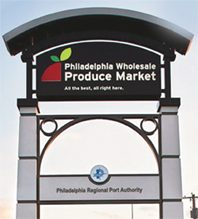It’s good for the retailer, because labeling continuity lends brand identity to departments and the produce section; the downside is the loss of Procacci’s own brand identity as a grower-shipper. “Santa Sweets have a specific flavor profile, and when we put a private label on it, we kind of lose that brand identity,” Feighery reports.
For this and other reasons, Feighery feels it’s important to reintroduce Procacci Bros. to the community of smaller retailers and foodservice operators by making regular sales calls. “Some of our customers see only one side of us, so they think of us as just organics, or just tomatoes, or strawberries. We’re constantly letting people know we do all of it.”
Andy Economou, general manager at Unifrutti of America, Inc., considered the 2012-13 season was one of the worst for market loss and spoilage due the unexpected and lengthy Chilean port strike. In addition, some of Unifrutti’s suppliers delivered poor quality grapes later in the season.
“We decided to protect the reputation of our exporters and at the same time to deliver grapes to our customers that met their required specification standards. It was difficult at times, but our methods and procedures proved to be acceptable to all parties involved,” Economou says. Yet the challenge provided the greatest achievement of the year as well: delivering adequate volume of fruit to customers with minimal complaints and price adjustments.
Curtis was also among those who struggled with poor quality this spring. Unusually poor growing conditions in Yuma and Huron led to lower-quality leafy greens. “There were a lot of headaches as far as bringing product in and trying to have it make grade,” he reports.
“We no sooner got through that and had a tremendous trucking challenge out of California, where rates are anywhere from $9,000 to $9,500 out of Los Angeles.” Surprisingly, rates did not skyrocket around the Fourth of July as usual, but actually fell this year. Anything, it seems, can happen. “This is a delicate economy,” Curtis says, “and it doesn’t take much to put a ripple in it.”
For Collotti, the toughest challenge has been “fighting the economy. People tighten their pocketbooks, they don’t spend as much.” Though he, too, struggled with high freight costs. Indeed, all merchants receiving produce from California faced high transportation rates this year. “The produce is available; the problem comes with finding affordable transportation to bring the product in,” commented Levin. “The price of fuel, plus new regulations implemented by the government, is really driving up transportation costs.”
Vena has experienced other growing pains: recruiting, hiring, and training, which force him and his team to focus on things other than product development and customer service.



